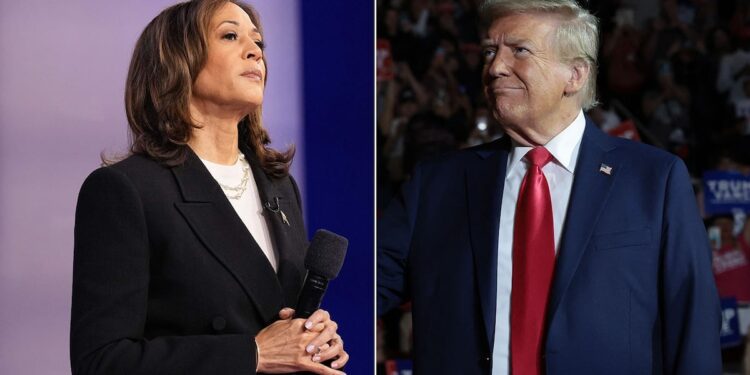Faced with an election with an undecided outcome, prestigious American media are giving up their support for Kamala Harris or Donald Trump, putting an end to a long tradition and sparking strong tensions within their editorial boards.
• Also read: After the errors of 2016 and 2020, should we still believe the American polls?
• Also read: (PHOTOS) The Trump dynasty or the Harris blended family: which family will win the battle for the White House?
• Also read: ON VIDEO | Beyoncé speaks at Kamala Harris rally
“It’s cowardice, and democracy is the victim,” thundered Marty Baron, former editor-in-chief of Washington Postin a post published Friday in X.
The management of the newspaper, owned by Amazon founder Jeff Bezos, announced the same day that the “Wapo», rather on the left, would not support, for the first time in more than 30 years, any candidate in the election as well as in future ballots, out of concern for independence.
This decision “ignores the overwhelming journalistic evidence presented by the Washington Post even on the threat that Donald Trump poses to democracy,” condemned Saturday in a press release by former big names of the title, Bob Woodward and Carl Bernstein, famous for having revealed the Watergate political scandal.
A few days before the November 5 election, the announcement had the effect of a bomb in the industry, especially since the journalists’ union accused owner Jeff Bezos of having prevented the publication of ‘support for the Democrat.
An intervention denied by a source close to management, who assured AFP that it was indeed a decision by the newspaper.
Earlier in the week, billionaire Patrick Soon-Shiong, owner of another major center-left newspaper, the Los Angeles Timeshad blocked the decision of the newspaper’s editorial committee which wanted to support the Democrat.
As a sign of protest, several employees resigned, including the editorial manager of the Los Angeles TimesMariel Garza. “I don’t accept that we remain silent,” she explained in an interview. “In these dangerous times, honest people must come forward.”
Billionaires
Donald Trump’s campaign team jumped at the opportunity: “Kamala is such an empty shell that the Washington Post decided to cancel all presidential support rather than support his candidacy,” it was commented.
Both newspapers supported Democratic candidates in the last elections. Many outraged readers immediately reacted by saying they would cancel their subscription.
By refusing to take a position, the media seeks to ensure “not to alienate potential readers,” Dannagal Young, professor of communications and political science at the University of Delaware, explains to AFP.
But also, she notes, “press moguls are probably not very inclined to want to alienate whoever might become president.”
Especially since some have financial interests linked to the government. This is particularly the case for Jeff Bezos, the companies in which he is a shareholder having signed major contracts with the administration in recent years, including the Pentagon.
“People want to be on the good side of Donald Trump,” summarizes Mme Young, recalling that the Republican is known for favoring personal relationships with political affinities.
This looks like “anticipated obedience” in the face of “the punishment they could suffer if Trump returns to power,” says Dan Kennedy, professor of journalism at Northeastern University, in a blog.
Tradition in decline
Although more than a century old, the tradition of media support, generally decided by committees of editorialists – and not by editorial staff – has experienced a decline in recent years in the United States, in a context of political polarization and economic crisis media.
This year, the prestigious New York TimesTHE Boston Globethe magazine Rolling Stone and the Philadelphia Inquirer notably gave their support to the Democratic candidate. As for the Republican, he garnered, among others, the support of New York Posta tabloid owned by tycoon Rupert Murdoch and the conservative daily The Washington Times.
If the campaign revealed the loss of influence of the big names in the press, among voters and the candidates themselves, whose attention is increasingly focused on other media such as podcasts or TikTok, these supports “continue to matter,” insists Jane Hall, professor of communications at American University.
And the refusal to take a position for some of them is all the more shocking as it takes place in a context “where Donald Trump is talking about attacking the licenses of television channels, punishing journalists more and ‘attack the free press’.
However, the Washington Post “showed courage in the way he covered the January 6 insurrection (the assault on the Capitol) and in opposing threats against the media,” notes the teacher.
According to her, “this sends a dissuasive signal to journalists.”



